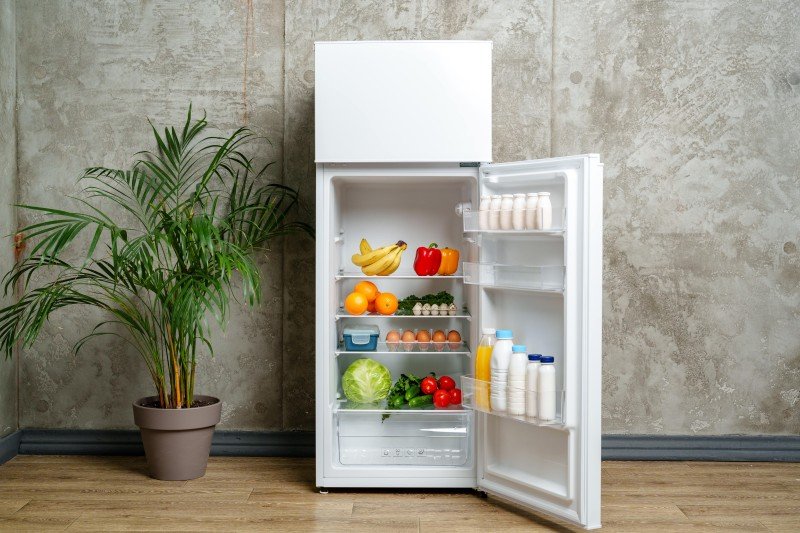How Much Do Fridges Experts Make?
The Comprehensive Guide to Refrigerators: Types, Features, and Maintenance
Refrigerators, commonly referred to as fridges, play a critical function in modern-day families by preserving food, decreasing waste, and maintaining a comfy living environment. my response have progressed substantially over the years in regards to innovation, performance, and style. This article aims to provide a comprehensive introduction of the various kinds of refrigerators, their functions, and tips for upkeep, making it an essential resource for property owners.
Kinds of Refrigerators
Refrigerators can be found in various designs and configurations, each dealing with various requirements and choices. Below is a summary of the most common kinds of fridges offered on the market today.
Type of Refrigerator
Description
Top-Freezer
This is the timeless fridge style where the freezer compartment is located on top. It is generally the most budget friendly choice, making it popular for budget-conscious customers.
Bottom-Freezer
In this style, the freezer is situated at the bottom, permitting easy access to fresh items at eye level. This type often includes pull-out drawers for easier organization.
Side-by-Side
This model has the freezer and refrigerator compartments arranged vertically next to each other. It supplies easy access to both sections and often comes with water and ice dispensers.
French Door
Integrating the advantages of a bottom-freezer design with wide doors on the refrigerator area, French door fridges provide adequate area and versatility, making them perfect for big families.
Compact
Also called mini-fridges, these smaller sized units are ideal for dorm spaces, workplaces, or as secondary refrigerators in homes. They have actually restricted storage but are energy-efficient.
Smart Refrigerators
Equipped with clever innovation, these fridges offer features such as touch screens, web connectivity, and app controls. They can provide notices for expired food and other wise functionalities.
Secret Features to Consider
When choosing a refrigerator, it is important to think about different features that can enhance use and effectiveness. Here are some essential functions to search for:
Energy Efficiency
- Look for designs with an Energy Star score to ensure energy performance and decreased utility expenses.
Storage Options
- Adjustable shelves, door bins, and specific compartments for vegetables and fruits enhance the versatility of storage.
Water and Ice Dispensers
- Lots of side-by-side and French door models come with integrated water and ice dispensers, supplying convenience and motivating hydration.
Temperature Control
- Exact temperature level control permits house owners to set optimum conditions for different food items.
Smart Features
- Functions like touchscreen interfaces, Wi-Fi connectivity, and built-in cameras to help handle grocery stocks make wise fridges appealing.
Noise Levels
- Think about models with low functional noise, especially if the kitchen area is open to the living area.
Maintenance Tips for Refrigerators
Correct maintenance can prolong the life of a refrigerator and ensure ideal performance. Here are some beneficial upkeep ideas:
Regular Cleaning:
- Clean the interior and outside surface areas of the fridge with moderate soap and water at least when a month.
- Eliminate spills right away to prevent smells and germs development.
Temperature level Settings:
- Maintain your refrigerator at a temperature between 35 ° F to 38 ° F and the freezer at 0 ° F for optimum food conservation.
Inspect Door Seals:
- Inspect the door seals periodically for cracks or tears. A malfunctioning seal can cause energy loss and increased electrical power expenses.
Defrost Regularly:
- For manual defrost models, thaw the freezer when ice builds up to lower the home appliance's workload.
Condenser Coils:
- Clean the condenser coils at the back or beneath the refrigerator every 6 months to enhance performance.
Keep it Level:
- Ensure the refrigerator is level for correct door alignment and to prevent vibrations.
Regularly Asked Questions (FAQs)
1. For how long should a refrigerator last?Usually, a refrigerator can last anywhere from 10 to 20 years, depending upon the brand and maintenance practices.
2. How can I improve the energy performance of my refrigerator?To enhance energy effectiveness, keep the fridge's temperature settings optimum, regularly tidy the condenser coils, and prevent putting hot food inside.
3. What type of refrigerator is best for small kitchen areas?Compact or counter-depth models are ideal for small cooking areas as they provide ample storage without inhabiting excessive space.
4. Are wise refrigerators worth the financial investment?Smart refrigerators can be worth the investment if you value convenience and technology. They use functionalities like stock management and remote access, which accommodate tech-savvy users.
5. How can I repair a refrigerator that is not cooling correctly?Start by checking the temperature settings, ensuring the condenser coils are clean, and confirming that the door seals are undamaged. If these do not resolve the problem, consider calling an expert specialist.
In conclusion, fridges are essential devices that play an essential function in preserving food and keeping a healthy way of life. With a range of types and features readily available, it is important for customers to choose a design that aligns with their specific needs. By understanding the choices and sticking to maintenance best practices, property owners can enjoy the benefits of their refrigerators for several years to come.
